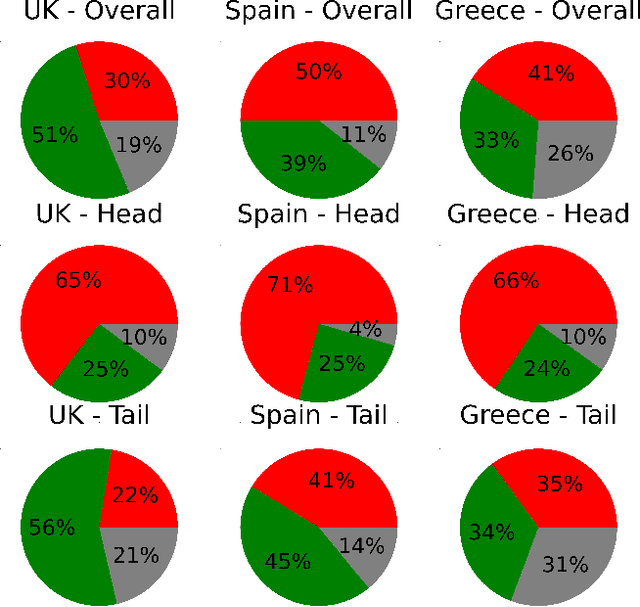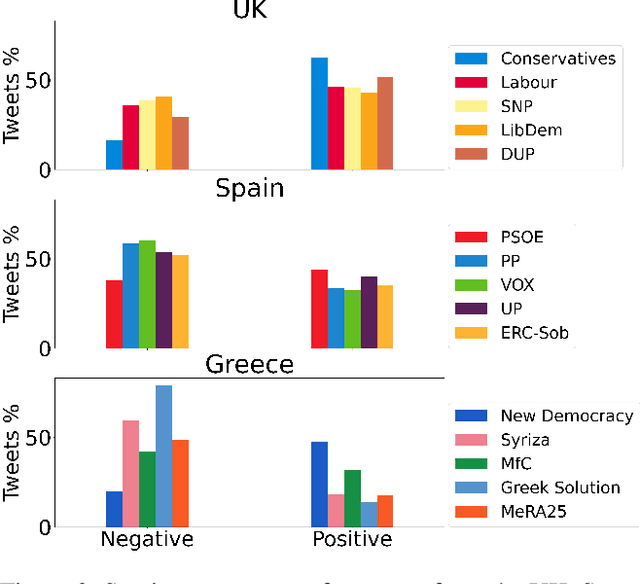Politics and Virality in the Time of Twitter: A Large-Scale Cross-Party Sentiment Analysis in Greece, Spain and United Kingdom
Paper and Code
Feb 01, 2022



Social media has become extremely influential when it comes to policy making in modern societies especially in the western world (e.g., 48% of Europeans use social media every day or almost every day). Platforms such as Twitter allow users to follow politicians, thus making citizens more involved in political discussion. In the same vein, politicians use Twitter to express their opinions, debate among others on current topics and promote their political agenda aiming to influence voter behaviour. Previous studies have shown that tweets conveying negative sentiment are likely to be retweeted more frequently. In this paper, we attempt to analyse tweets from politicians from different countries and explore if their tweets follow the same trend. Utilising state-of-the-art pre-trained language models we performed sentiment analysis on multilingual tweets collected from members of parliament of Greece, Spain and United Kingdom, including devolved administrations. We achieved this by systematically exploring and analysing the differences between influential and less popular tweets. Our analysis indicates that politicians' negatively charged tweets spread more widely, especially in more recent times, and highlights interesting trends in the intersection of sentiment and popularity.
 Add to Chrome
Add to Chrome Add to Firefox
Add to Firefox Add to Edge
Add to Edge